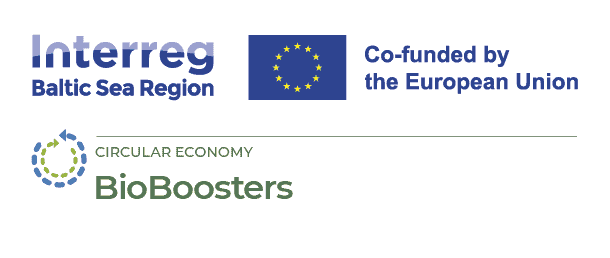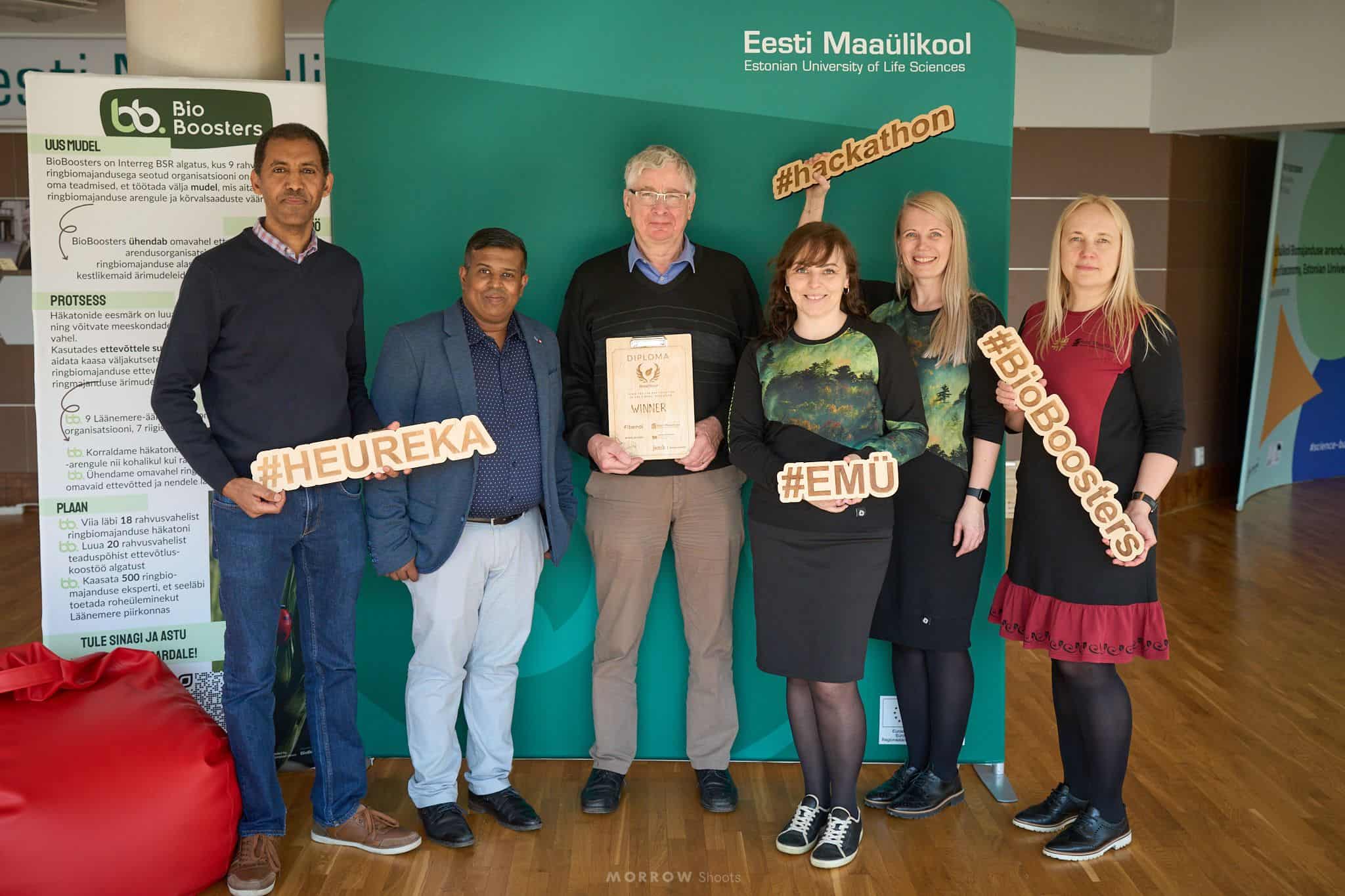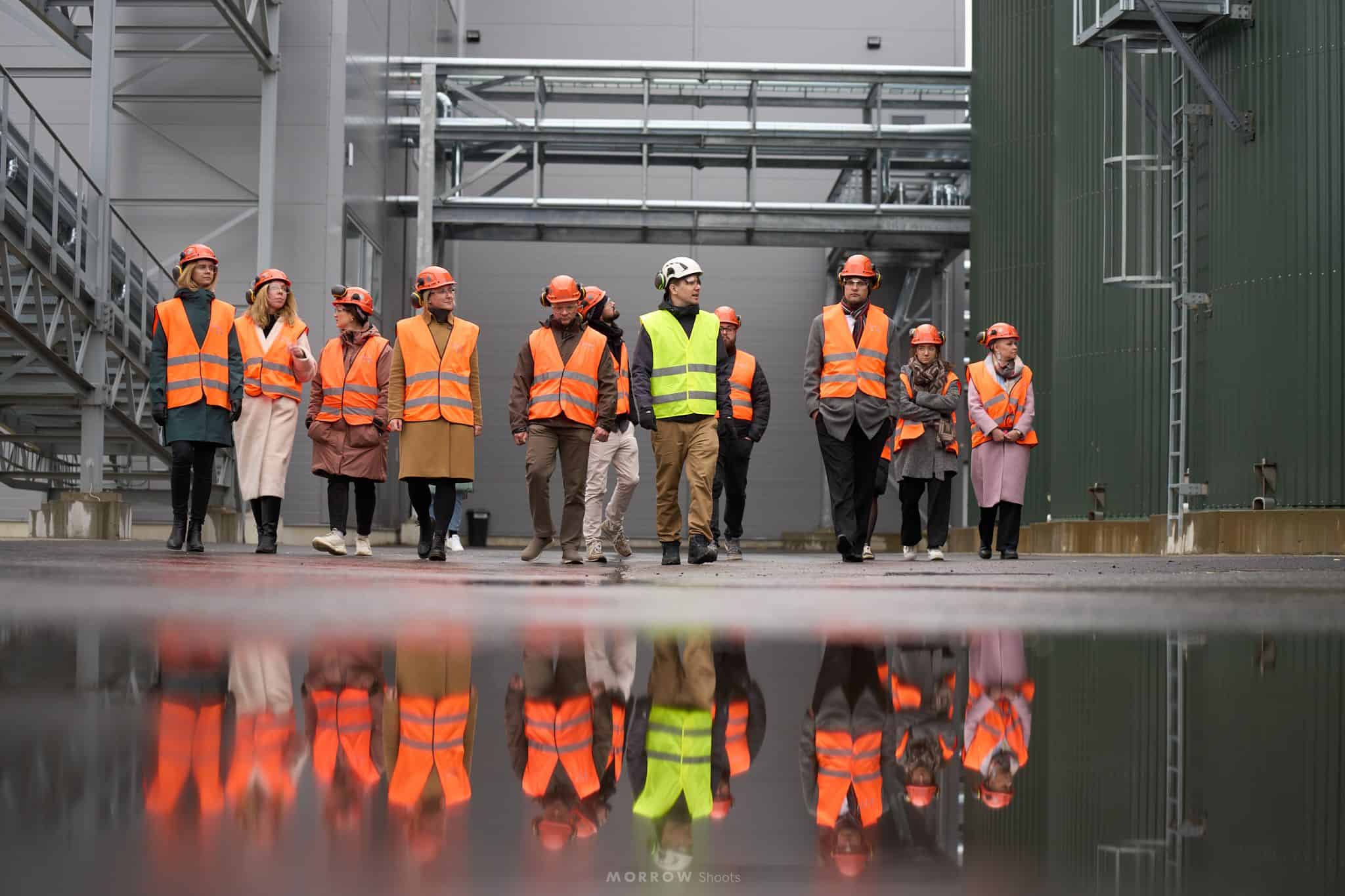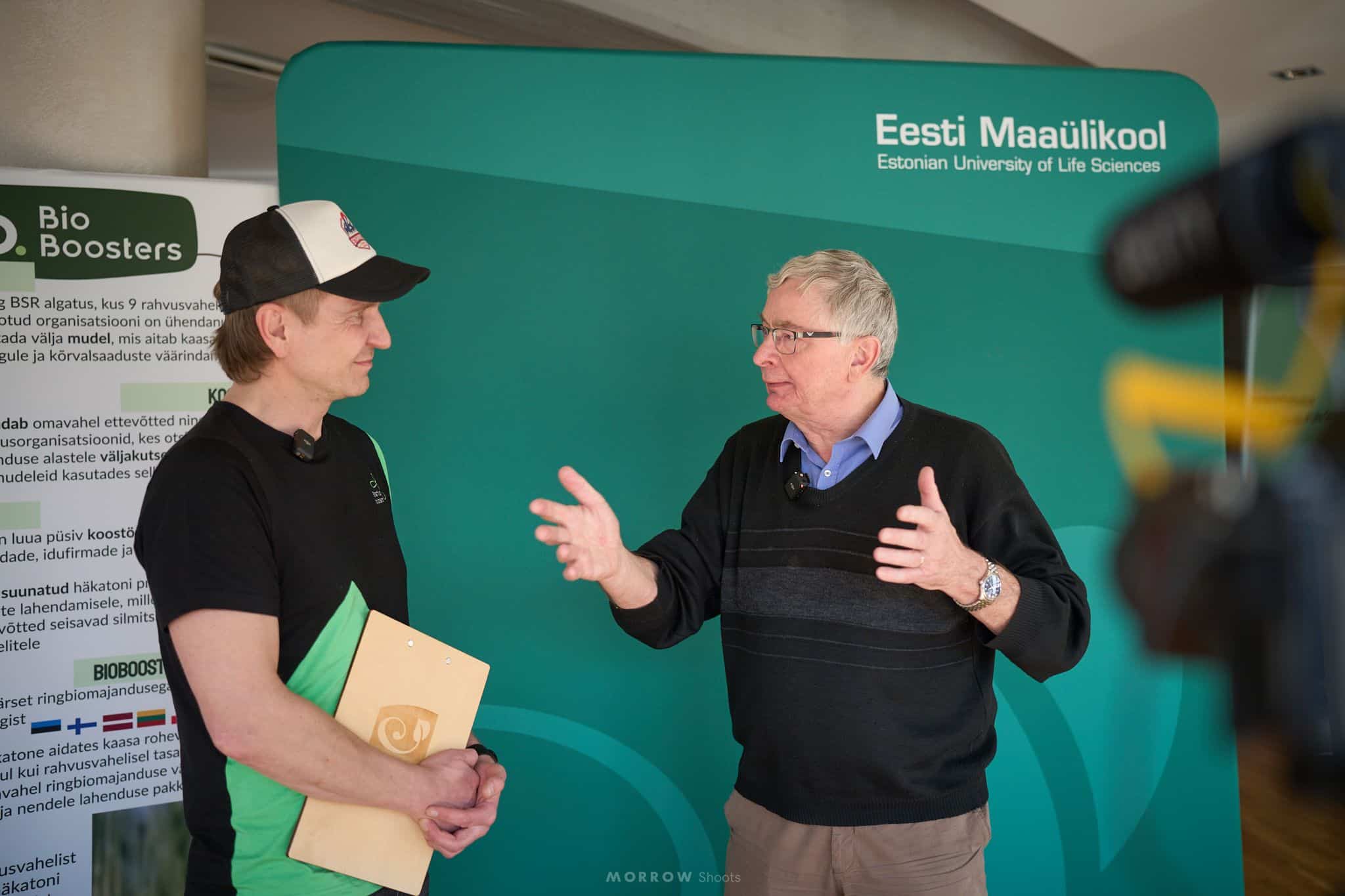
The story about Fibenol Hackathon
02 September 2024
Fibenol Hackathon: Paving the Way to a Sustainable Biotech Era
The Fibenol Hackathon Days were held on April 25-26, 2024, at the Estonian University of Life Sciences Centre of Bioeconomy. The event began with an exciting tour of the Fibenol pilot plant in Imavere, Estonia. The hackathon challenge, proposed by Fibenol, brought together six international teams and thirteen mentors to find innovative solutions for adding value to Fibenol’s cellulosic sugars, lignin, and specialty cellulose, and to offer more sustainable feed and food production solutions.
Fibenol is a biotech innovator driving the chemicals and materials industry towards sustainability by offering solutions to replace fossils-based materials with low-carbon biomaterials such as Lignova lignin, wood sugars, and specialty cellulose. Applications of these solutions include construction materials for interiors, buildings and roads (asphalt), packaging, bioplastics, home care products, cosmetics and alternative proteins.
BioBoosters Hackathon Model: A Tool for Boosting Innovation
Initially designed by Jamk University of Applied Sciences and customized through a first round of piloting process by nine innovation-oriented organizations in the Baltic Sea Region (BSR), the BioBoosters Hackathon model has proven to be an effective tool for addressing real-life industry challenges with the expertise of field specialists, both locally and internationally.
A strong international team has been formed, comprising representatives from nine regions and seven countries in the BSR. These representatives are experts in their respective fields and regions, facilitating the sharing of information among numerous stakeholders and engaging mentors, researchers, and SMEs as both challenge and solution providers.
What does academia gain from this?
As a university, utilizing this model effectively bridges the gap between academia and the private sector. It serves as a powerful catalyst, inspiring and engaging students in the innovation process. By participating, students gain firsthand experience with real-life challenges and limitations faced by various sectors daily. This exposure is invaluable, as it prepares them to tackle real-world problems with practical solutions.
During the hackathon process, professors and researchers play a crucial role as mentors and experts. They provide research-driven insights and guide the teams towards finding effective solutions. This mentorship is not only about imparting knowledge but also about fostering a collaborative environment where students can thrive and innovate.
Through this kind of mentoring, students are empowered to propose new, practical solutions that are genuinely needed in the market. They learn to think critically and creatively, applying their academic knowledge to solve pressing industry problems.
Moreover, the hackathon process brings together experts from both national and international levels. This diverse mix of expertise fosters important contacts and collaborations, creating a rich network of professionals who can support and enhance each other’s work. These interactions often lead to long-term partnerships and innovative projects that extend beyond the hackathon itself.
The Beauty of International Engagement
Among the six selected solution provider teams, two were from Sweden, one from Estonia, one from a collaboration between Estonia and Austria, one from Switzerland, and one from Belgium. These diverse teams were supported on-site by 13 mentors and experts from Estonia, Finland, and France, who provided invaluable guidance in forming their solutions.
The mentoring session breaks, and the evening event were particularly fruitful, offering participants a vibrant platform to share contacts and spark new collaborations. These interactions not only enriched the hackathon experience but also laid the groundwork for future partnerships and innovative projects.
BioBoosters Team: The Support That Keeps You Going
Testing the model in the first piloting round, rather than being the main organizer, gave us extra support from the team. We learned from the mistakes and successes of the first BioBoosters hackathons. Contribution to the continuous improvement of the hackathon model was achieved by mapping out shortcomings step-by-step and creating a tool to prevent mistakes and strengthen the international hackathon model.
The common effort of looking for experts/mentors among BioBoosters partners and SMEs as solution providers sparked collaboration and grew our transnational networks in BSR and beyond. During the Fibenol Hackathon, we had participants not only from Estonia but also from Finland, Sweden, Switzerland, Belgium, and Austria.
Innovative Challenge Provider: The Key to Success
The success of the Fibenol Hackathon began with the company’s attitude itself. Fibenol is committed to innovative, research-based sustainable solutions that utilize local resources and add higher value at the local level. It matters to them a lot. The challenge provider team was open to discussions, they presented the challenge during the launch webinar and kick-off events, and also served as mentors and jury members during the hackathon days in Estonian University of Life Sciences. Most importantly, Fibenol opened their demo plant in Imavere to all participants, showing the entire process and providing a deeper explanation of their challenge on-site.
And the winner is?
Determining a single winner isn’t always straightforward. Sometimes, multiple teams excel, or their solutions can be combined to create an even better outcome. The Fibenol challenge provider highlighted the strengths and readiness of each team’s proposed solutions, declaring that all teams were winners during these intensive hackathon days. However, the solution proposed by the NovelYeast team from Belgium particularly stood out to Fibenol, and further collaboration is now on the horizon.
Takeaway Lessons for Future Successful Hackathons
Three Key Takeaways from Our Hackathon Process:
- Start Early and Build a Supportive Team: Organizing a hackathon is a lengthy process. Starting early allows for thorough planning and preparation, ensuring a smoother event. The key to success is a dedicated team with diverse skills that support the event organization. The international BioBoosters team contineously supported the process of the event organization.
- Partner with Innovative Challenge Provider: The success of a hackathon often depends on the quality of the challenges. Collaborating with providers who have a research-based, innovative mindset can lead to more impactful solutions. Just find challenge providers who integrate innovation into their daily lives. Maintain regular contact to ensure alignment and mutual understanding.
- Believe in Better Solutions for a Sustainable Future: Hackathons are not just about solving immediate problems but also about creating a better future. Believing in the potential of the solutions can inspire participants to think creatively and push boundaries. Foster an environment of optimism and forward-thinking. Encourage participants to consider the long-term impact of their solutions and how they can contribute to sustainability.
By focusing on these three areas, you are ready to create a hackathon that not only addresses current challenges but also inspires innovative solutions for a more sustainable future.
For more details about the BioBoosters Fibenol Hackathon and information on BioBoosters upcoming events, please reach out to:
Katrin Kepp, Head of the Centre of Bioeconomy, BioBoosters project manager
Email: katrin.kepp@emu.ee
Mobile: +372 56 157 938
Centre of Bioeconomy, Estonian University of Life Sciences
Interactive map showing pilot locations. Use the arrow keys to move the map view and the zoom controls to zoom in or out. Press the Tab key to navigate between markers. Press Enter or click a marker to view pilot project details.








